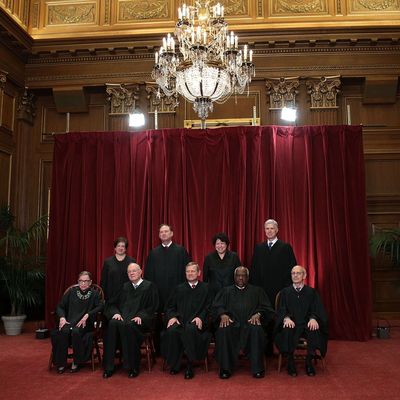
The biggest show in America right now (other than unpredictable explosions from the direction of the White House) is the Brett Kavanaugh confirmation hearing. The confrontation over this second Trump nominee to the Supreme Court involves very real and vital issues from reproductive rights to health care to presidential accountability to labor and voting rights to the ability of the federal government to rein in corporate power. The balance of ideological views at SCOTUS could soon tilt strongly to the right. And the stakes are so high that the party controlling the White House and Congress is rushing Kavanaugh towards the Court before the possible disruption of GOP plans by midterm voters.
A new survey of likely voters by C-Span, moreover, shows that 91 percent of them agree that: “Decisions made by the U.S. Supreme Court have an impact on my everyday life as a citizen.” But asked if they could name any of the Court’s current members, 52 percent could not. This is not a new thing, to be sure: the same C-Span question back in 2009 showed 54 percent as unable to name a sitting justice.
Back in 2009, the best-known justice (among those who knew any of them) was predictably Clarence Thomas, who joined the Court in 1991 after a confirmation hearing that exceeded anything before or since in terms of penetrating the consciousness of people who normally would have had no interest in constitutional law or even politics (as a beleaguered Senate staffer at the time, I can vouch for the fact that few citizens failed to identify themselves as partisans either of Thomas or of his sexual-harassment accuser, Anita Hill). I would have figured Thomas’s superior name recognition held fast today, but I would have been wrong: The best-known Justice now, and not by a small margin, is Ruth Bader Ginsburg, identified by one-fourth of the respondents of the C-Span poll, as opposed to 14 percent for Thomas and for Chief Justice John Roberts. RBG’s renown is probably attributable to powerful recent publicity, some of its stemming from Irin Carmon and Shana Knizhnik’s best-selling book about her, some from a recent documentary, and some simply from her remarkable personality, stamina, and work habits.
There are other findings in the C-Span poll that are interesting in terms of the current environment. 82 percent of those who voted in the 2016 elections claim that Supreme Court appointments were important to their presidential vote. By nearly a three-to-one margin, respondents favored some sort of restriction on SCOTUS tenure (as opposed to the current lifetime appointments). And while less than half could name any Supreme Court decision ever handed down, an impressive 36 percent could name Roe v. Wade, and overall, respondents opposed its reversal by a 52/28 margin.
If there is any mystery as to why Democrats are making the future of Roe v. Wade central to the Kavanaugh confirmation fight, that finding should dispel it.






























